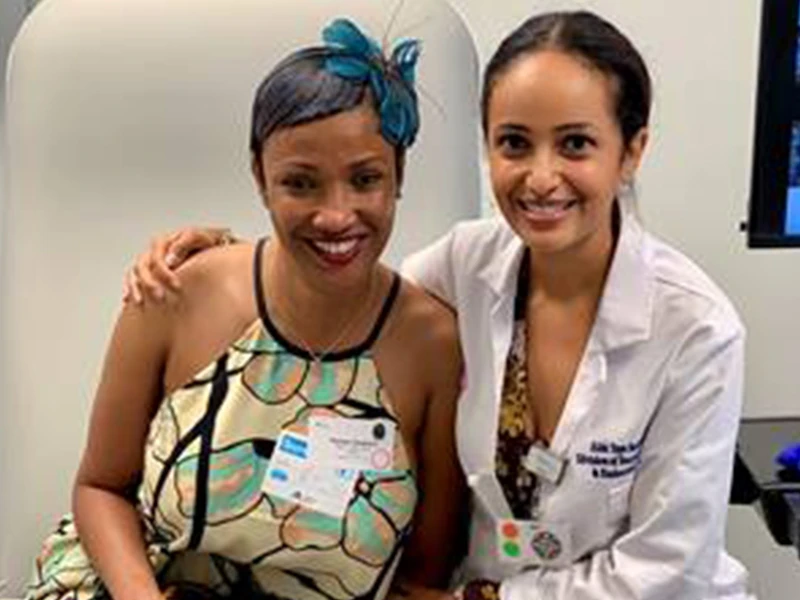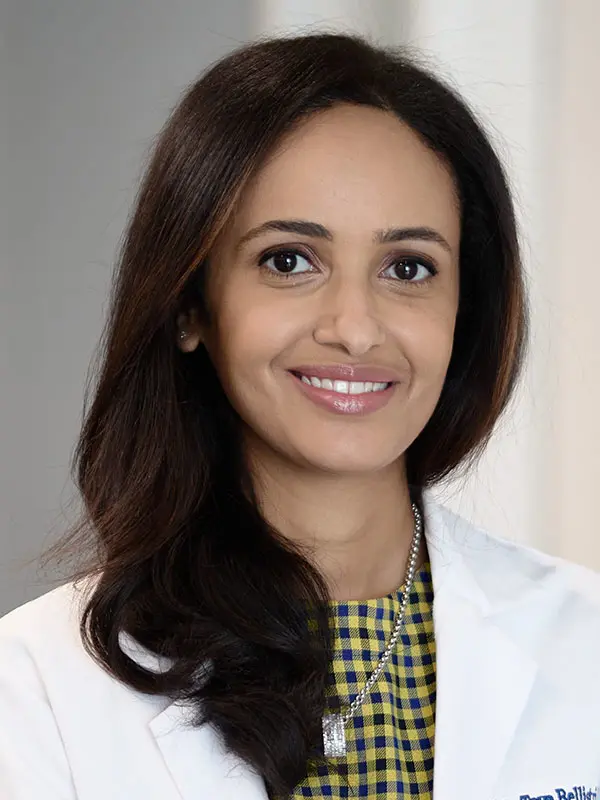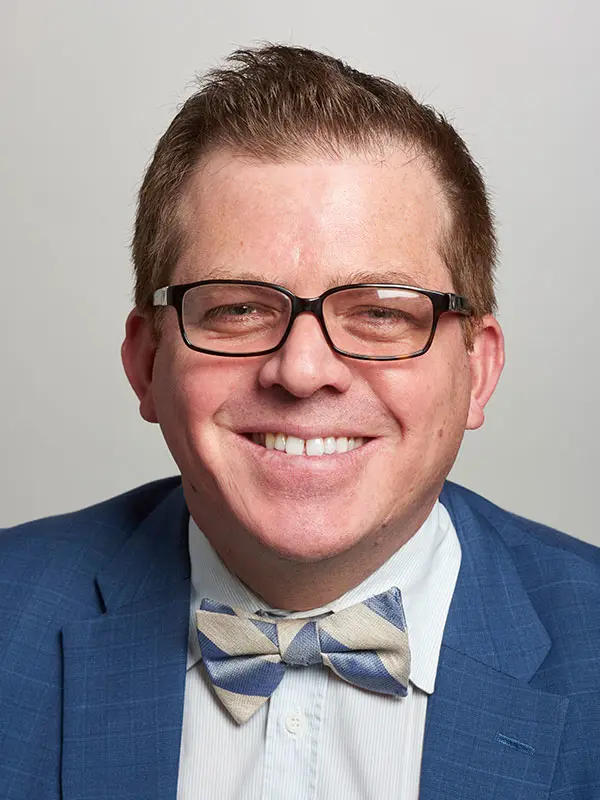Two Mount Sinai endocrine surgeons were among the first in the United States to use a novel minimally invasive scar-free thyroidectomy approach, with continuing successful outcomes in more than 100 patients thus far.
In the transoral endoscopic thyroidectomy vestibular approach (TOETVA), all or part of the thyroid gland is removed through the patient’s mouth via incisions inside the bottom lip. Gustavo G. Fernandez-Ranvier, MD, PhD, Associate Professor of Medicine (Endocrinology, Diabetes and Bone Disease), and Surgery, and Aida Taye, MD, Assistant Professor of Surgery, Icahn School of Medicine at Mount Sinai, began performing TOETVA in 2016. Dr. Fernandez-Ranvier had traveled to Thailand to learn the procedure from Angkoon Anuwong, MD, who pioneered it there about 10 years before. Dr. Anuwong then came to New York to proctor the first few cases at Mount Sinai.
The surgeries are performed at The Mount Sinai Hospital and the Mount Sinai Thyroid Center at Union Square, both multispecialty, collaborative centers that include Endocrinology, Endocrine Surgery, Head and Neck Surgery, Pathology, and Radiology.
Since 2016, the Mount Sinai team has trained surgeons at other major U.S. surgical centers to perform TOETVA. The procedure is now becoming a standard alternative to traditional open thyroidectomy for selected patients, including those with benign thyroid tumors of less than 8 cm or small (<3 cm) cancers and who wish to avoid a neck scar. “The attractive part is that it’s scarless,” Dr. Fernandez-Ranvier says.
Scarring may be of particular concern for darker-skinned patients who are prone to keloids, or those from cultures where scarring may cause stigma, Dr. Taye says. “There’s a big cultural aspect. This procedure took off in Asia, and we adopted it. There’s a lot of negative outcome of having a scar, especially for young women.”

Aida Taye, MD, with patient Thamar in a follow-up visit 14 days after a 4.5 cm benign nodule was removed in a TOETVA procedure performed by Dr. Taye and Gustavo Fernandez-Ranvier, MD, PhD.
In TOETVA, anesthesia is delivered transnasally. Three incisions are made in the space between the lower lip and the jaw. A working space is created with injection of epinephrine/saline mixture and a tunneler, and three trocars placed. The strap muscles that cover the thyroid are opened, and the thyroid isthmus is divided to allow removal of one or both lobes while visualizing the recurrent laryngeal nerve and parathyroid glands.
The procedure can last from two to three hours for total thyroidectomy, and less for lobectomy. Patients usually are sent home the same day. Bruising is common, but typically resolves in five to seven days. And, Dr. Taye points out, “wounds in the mouth heal much faster than just about anywhere. By two weeks you often can’t even see any incision.”
A study of Mount Sinai’s first 50 TOETVA patients, between September 2016 and June 2018, was published in Surgical Innovation in 2020. Twelve of the patients underwent total thyroidectomy, and the rest subtotal thyroidectomy or lobectomy. The mean surgical time was 149 minutes for lobectomy and 218 minutes for total thyroidectomy. Nearly one-third (32 percent) experienced postoperative transient lower lip numbness, recovering within an average of 23.8 weeks. One patient had persistent lower lip numbness beyond six months.
Transient chin numbness occurred in 13 patients (26 percent), with an average recovery time of 15.7 weeks. Transient recurrent laryngeal nerve (RLN) injury with hoarseness occurred in two patients, while one had permanent RLN injury. No further RLN injuries have occurred in subsequent patients.
Dr. Fernandez-Ranvier notes, “Essentially we are endocrine surgeons, but it requires laparoscopic and endoscopic skills. You need someone to proctor you, to watch videos, and have someone to be your guide at least for the first two cases. There is a learning curve for sure, but that’s true for any new technique.”
Dr. Taye points out that RLN injury and numbness can also occur with open surgery but that the risk declines as surgical expertise increases. “Here at Mount Sinai we’ve now gotten it down to an art, with antibiotic choice, intubation procedure, instrumentation, and post-surgical management,” Dr. Taye says. “All of that has been evolving since case number one.”
In the procedure, three incisions are made between the lower lip and the jaw. A working space is created with injection of epinephrine/saline mixture and a tunneler, and three trocars placed. The strap muscles that cover the thyroid are opened, and the thyroid isthmus is divided to allow removal of one or both lobes.
Featured

Aida Taye, MD
Assistant Professor of Surgery, Icahn School of Medicine at Mount Sinai

Gustavo G. Fernandez-Ranvier, MD, PhD
Associate Professor of Medicine (Endocrinology, Diabetes and Bone Disease), and Surgery, Icahn School of Medicine at Mount Sinai